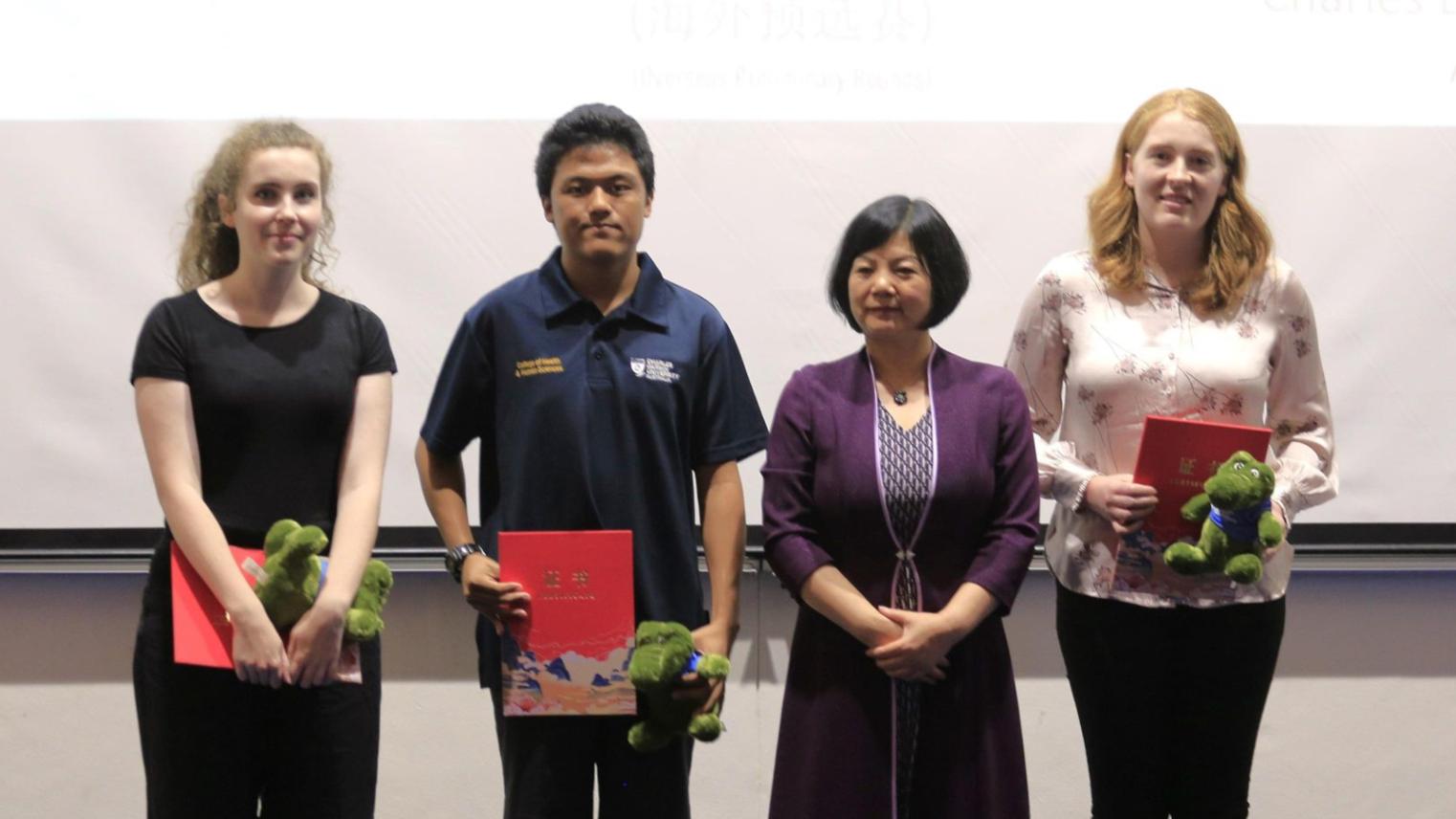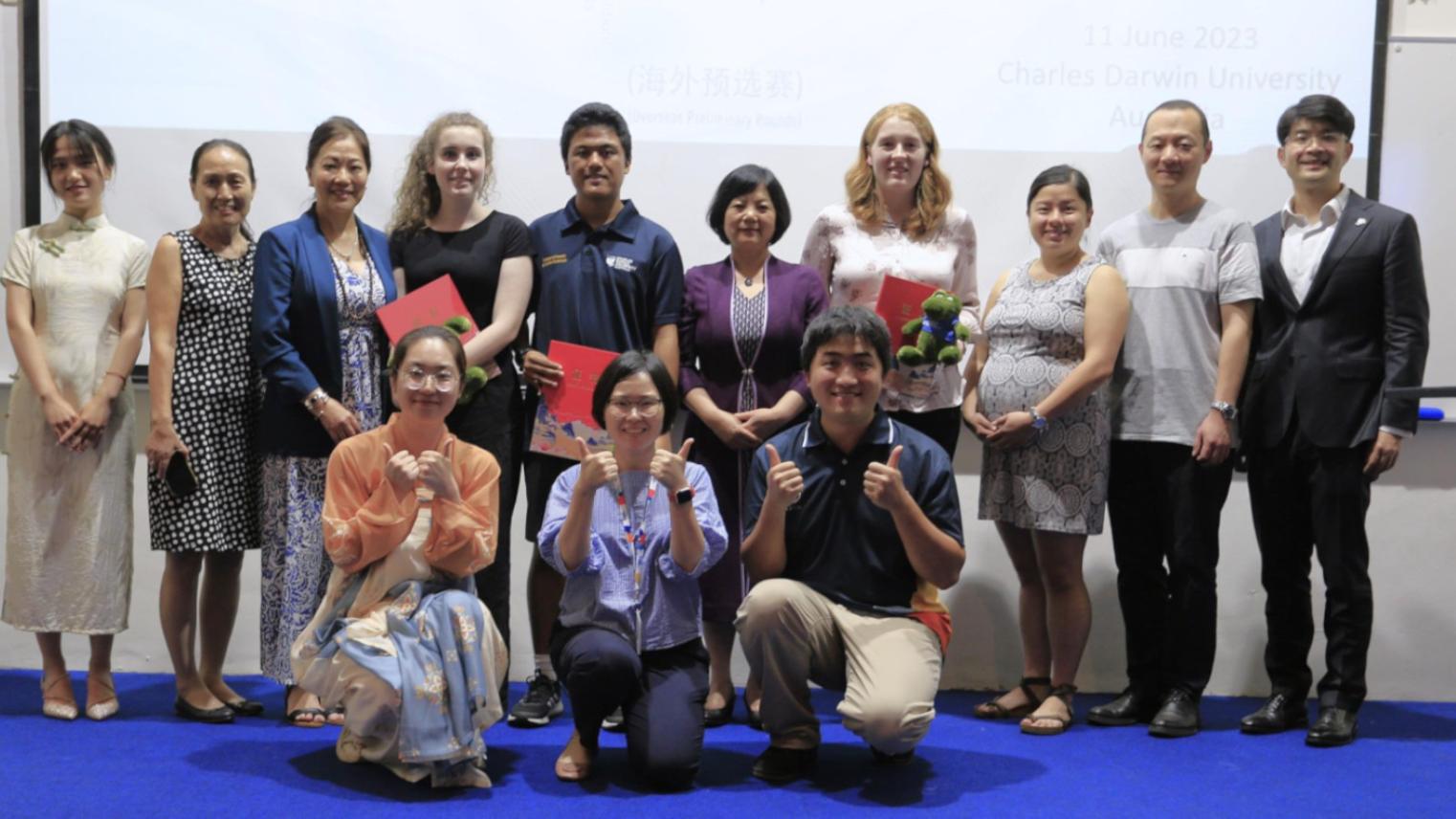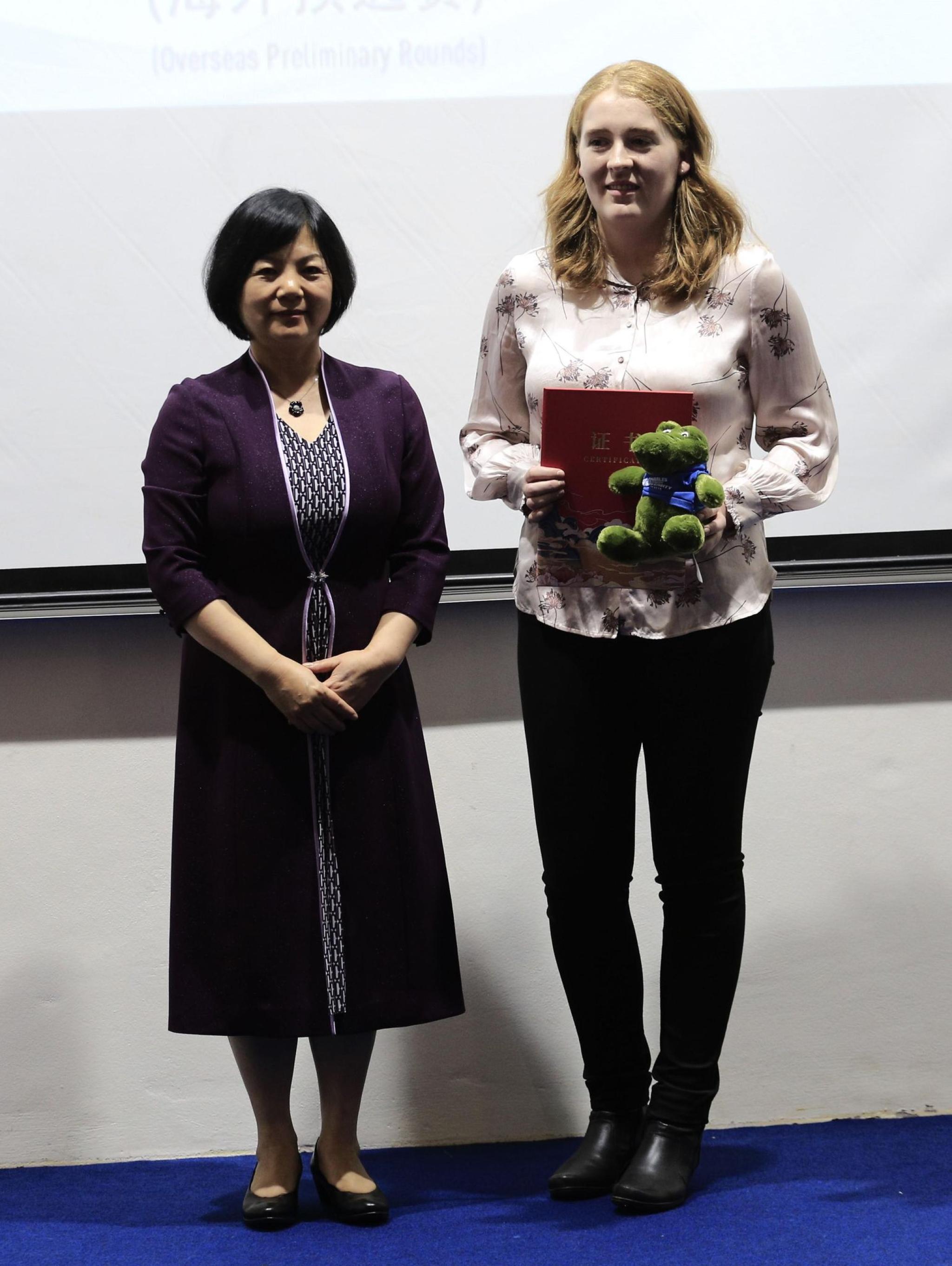First, please accept our heartiest congratulations at your amazing achievement at the competition! Can you tell us more about it?
I had seen some video clips of the Competition global finals when I first started learning Chinese in 2019. I remember at that time being so in awe of the level of Mandarin on display and thinking to myself I would love to develop the level of fluency where I could enter the competition. So, when I found out about the competition being held in-person again this year, I felt that it was finally time to take the opportunity.
I also received great encouragement from the ANU Chinese faculty, my Chinese tutor Fengyuan Ji who recommended me, and Shengyu Fan who accompanied Charlotte and me on the trip to Darwin.
What was your favourite aspect of the competition?
The most amazing part of it all was meeting other participants, as well as everyone from the Confucius Institute, Charles Darwin University, and the wider Mandarin-speaking community in Darwin. The competition day had an incredible atmosphere and was much more a celebration of learning Chinese than a competition. The experience of speaking publicly and performing in Chinese was very inspiring and a real confidence boost.
What happens next?
The winners of the preliminary rounds are invited to participate in the global finals in China! The whole thing will be televised as a reality TV show. Unfortunately, Cosette will not be able to attend the finals in China, as she is already committed to participating in the ANU Year in Asia program in Indonesia, beginning at the same time (July). The visa conditions are such that she is unable to leave Indonesia for the first two months of her stay.
Describe three words in Chinese that define you, and briefly explain what they mean/translate to?
My first year Chinese tutor gave me the Chinese name “静思” taken from the title of the famous Tang dynasty poem《静夜思》. “静” is a character that reflects a deep calmness, quietness, and stillness. I really resonate with this meaning, not in that I think it exactly defines me now, but it definitely defines who I hope to be in future. That is, someone who can face life’s challenges and complexities with a sense of stillness and inner peace. The second character “思” means “thoughtful”. I’m someone who thinks deeply about things. I’m very curious and like to keep an open mind. A third word that I would use to describe my attitude is “乐观” meaning “optimistic”. I find myself increasingly able to see things from a ‘glass half full’ point of view.
What’s the most culturally vibrant thing about modern China, according to you?
China is such a diverse, culturally vibrant place that it’s difficult to pick out just one aspect. However, I think something very exciting about modern China is the younger generation and the identity they are forging for themselves as they balance the adoption of modern technology and rapid economic development alongside the remembering and upholding of thousands of years of history and culture. I think this kaleidoscope of ancient and modern makes contemporary China an incredibly vibrant cultural identity.
What do you love most about learning Chinese at CHL?
I love the passionate lecturers and tutors who I’ve had the pleasure of learning from throughout the years. I always come away from classes feeling very inspired and motivated to continue working hard towards Chinese fluency.
I also love the academic rigour of the program. I came to ANU at Chinese 3 (intermediate) level in 2021 and in just two and a half years have reached the level of writing research essays, reading modern literature, and delivering formal news reports entirely in Mandarin Chinese.
Finally, I love how genuinely fun it is to learn Chinese alongside other like-minded students who are also similarly passionate and motivated. Throughout the years we’ve done a lot of group-speaking assignments where we’ve gotten out of our comfort zones and performed skits, filmed video interviews, or answered impromptu questions. The fun environment has made the process of learning the language so exciting and enjoyable.
What are your future plans?
I plan for Chinese to remain a central part of life after graduation. I hope to work in the Australia-China business space, in a role where communicating in Mandarin can help improve and strengthen relations between Australia and China.
What’s your advice to anyone wanting to learn a language?
A lot of people might not guess that I grew up in a small village in central-west New South Wales and only had the opportunity to start learning Chinese at age 19. I want to bring that up because I think there’s a misconception that it’s not possible to learn languages to a high level as an adult, or as an adult who doesn’t have any prior language-learning background. I want to encourage more people to take the plunge and start learning a language at university because, in my opinion, interest and dedication are much more important factors than age when it comes to language success.


